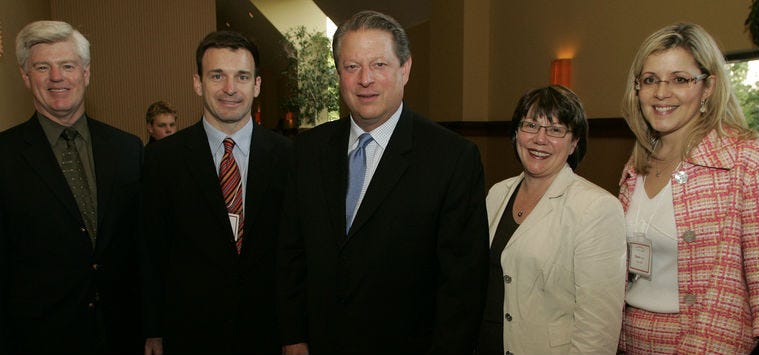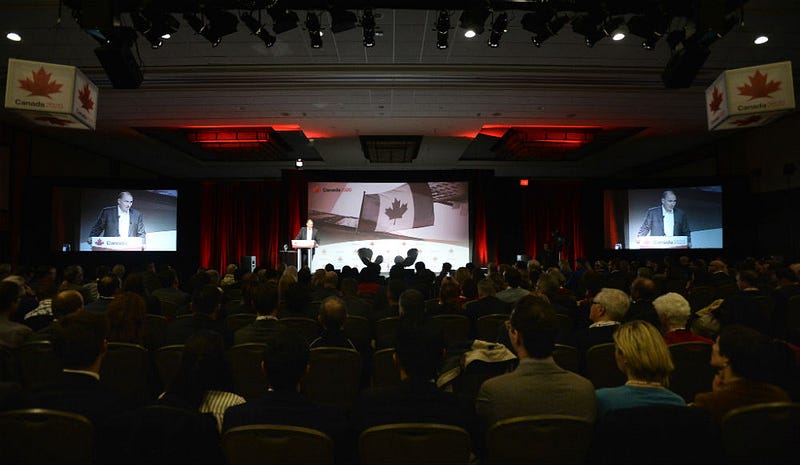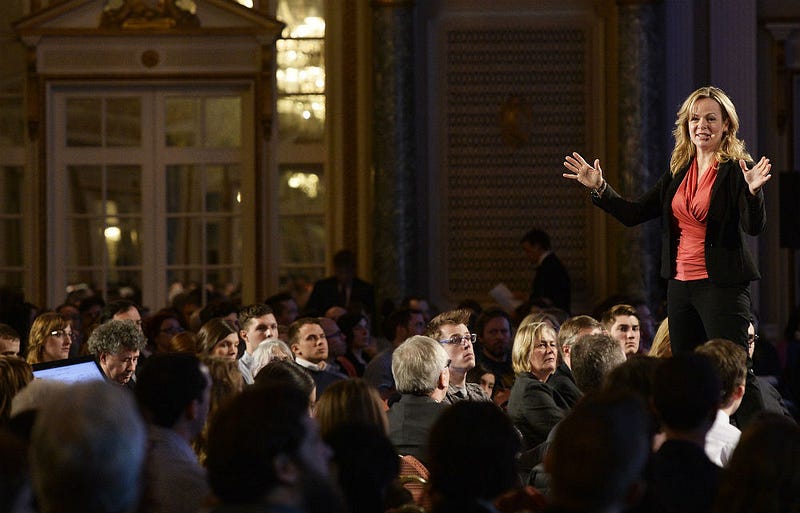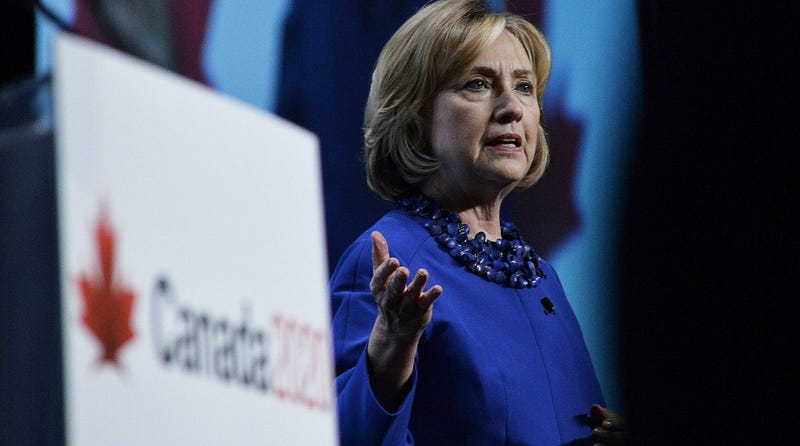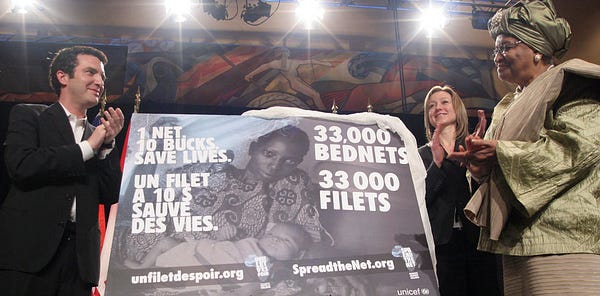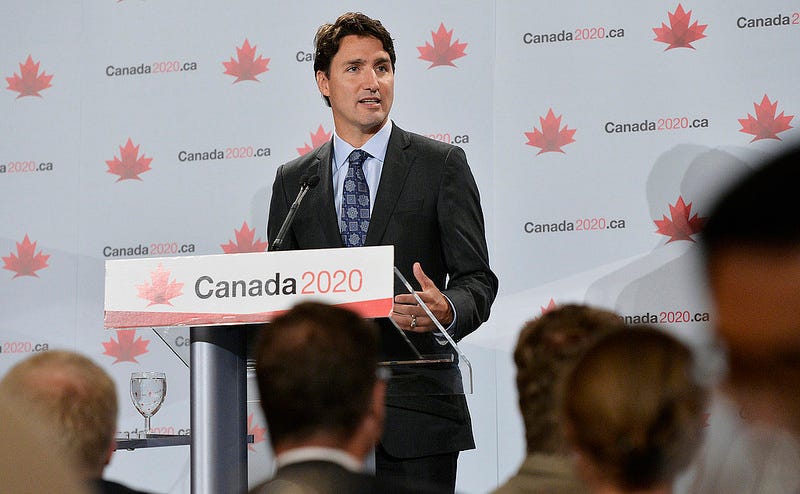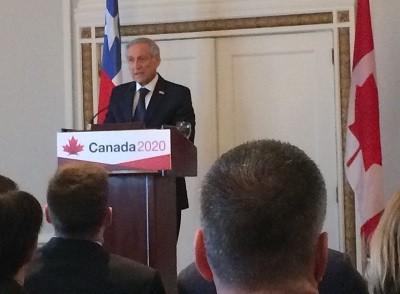Prime Minister Justin Trudeau released his new budget on Tuesday, and with it made his first official mark on the Canadian economy.
The immediate headline is the massive string of deficits that the Liberal government will run as they seek to deliver on their election promise of “strengthening the middle class.”
But despite the red ink, reviews`are (mostly) positive for Growing the Middle Class. It recognizes there are no quick fixes to the Canadian economy, and that investing now means we will see economic growth in the future.
There are lots of budget reaction pieces you can read, but we wanted to point out the ways Growing the Middle Class will affect Canada not just tomorrow — but 5, 10, even 20 years from now.
Here’s 7 ways the new budget takes the long-view for Canada
1. The Canada Child Benefit means we’ll have healthier, more educated kids
The future of Canada’s economy rests in the health of its children.
Growing the Middle Class puts families — and specifically children from lower and middle income families — first.
It includes $10 billion more over two years for a new Canada child benefit, absorbing and replacing both the Canada child tax benefit and the universal child care benefit.
The government bills this new benefit as “a plan to help families more than any other social program since universal health care.”
The amount of the benefit will depend on size of family and income but the government says nine out of 10 families will get more help than they do under existing programs, and that 300,000 young Canadian children will move out of poverty.
There is strong evidence that investing in children pays off significantly. In 10 years time, those children will be entering post-secondary institutions, and starting careers.
However, the fact that tax credits for children’s fitness and arts expenses are being phased out over two years, with maximum eligible expenses cut in half for 2016 and eliminated entirely in 2017 is a real shame. With childhood obesity levels on the rise, and the number of physical education hours for children in school dropping, it seems counter-intuitive to stop helping parents with the cost of extra-curricular activities.
2. We are about to fundamentally change how we move around our cities
During the last campaign, one of the major platform points for the Liberal Party was infrastructure. More specifically, Justin Trudeau promised to make the single biggest investment in infrastructure in Canadian history.
Today, they’ve done that — and it has massive implications for the way we move to, from and around our cities.
By investing $120 billion in infrastructure spending over the next decade, we can expect to see major upgrades to our roads and highways, electricity and waterway systems, as well as the way our cities are connected . That’s not to mention the nearly $12 billion upgrades we’re about to make to our public transit systems, affordable housing and more.
After the economic collapse in 2008, the Harper government’s response was the Action Plan — a half-measure of infrastructure spending mostly targeted at Conservative ridings. If handled correctly, this investment has the opportunity to make Canada’s cities world class examples of smart, modern infrastructure.
3. More young Canadians than ever before will have a post-secondary education
A good education should be accessible to all Canadians, and Growing the Middle Class
attempts to level the playing field a bit.
The government will increase the Canada Student Grant amount by 50 per cent, from $2,000 to $3,000 for students in low-income families, and from $800 to $1,200 per year for students from middle-income families. There are approximately 250,000 students across Canada who come from low-income families. The government says “this can mean the difference between getting a degree and dropping out.”
4. Our scientists, researchers, universities and start-ups are about to get a lot more collaborative
The government’s Innovation Agenda is major part of Growing the Middle Class, with an investment of $800M over four years to support innovation networks and clusters to increase collaboration.
Recognizing the value of post-secondary institutions in and their role in innovation, Budget 2016 include a $2-billion investment over three years for a new Post-Secondary Institutions Strategic Investment Fund.
“This initiative is aimed at enhancing and modernizing research and commercialization facilities on Canadian campuses, as well as industry-relevant training facilities at college and polytechnic institutions, and projects that reduce greenhouse gas emissions and improve the environmental sustainability of these types of facilities.”
Algonquin College was quick to applaud this move, stating ‘colleges will be better equipped to create world-class programs and conduct the research our entrepreneurial start-ups need to grow and prosper.’
5. By 2021, Canada’s economy will be less reliant on fossil fuels — andhopefully a leader in clean energy
We say hopefully because Canada has had the opportunity to lead on renewables for years now and continually deferred investing in clean technologies.
That appears to be about to change. Building on the $2-billion Low Carbon Economy Fund that Prime Minister announced at the First Ministers’ meeting in early March, the government will be accelerating clean technology development with a $130-million investment over five years for clean technology research.
Budget 2016 also provides $62.5 million over two years to Natural Resources Canada to support the deployment of infrastructure alternative transportation fuels, including charging infrastructure for electric vehicles and electricity storage.
6. The goal of opening government and promoting electoral reform
Compared to other budget items, one could argue that these two are minimal investments. But to us, open government and electoral reform are a giant philosophical leap in good governance. Budget 2016 includes $17.8 million investment over five years to make government more accessible to Canadians.
Included in the plan is a pledge to create a single, central website for Canadians so they can request information from any institution. Cynics and those who know the tangled web of IT infrastructure in federal departments will say this is an insurmountable task — but the goal is a worthwhile one if it means Canadians can access all of their personal information. Under the government’s plan, requests for information will be filled in 30 days or less — if they take longer, there will be a written explanation.
Electoral Reform is also part of the budget, providing $10.7-million over four years to encourage consultations on voting reform and how to engage more Canadians in the electoral process.
7. A long overdue improvement in Canada’s Indigenous communities
The living conditions of Canada’s indigenous people have been a global embarrassment and our country’s shame.
We are happy to see that budget 2016 includes $8.4 billion in spending over the next five years to ensure “Indigenous peoples share in Canada’s prosperity.”
The government’s budget outlines that half of that is earmarked for education, improving schools on reserves and hiring teachers.
In addition, nearly $2 billion will be invested in water and wastewater infrastructure and drinking water monitoring over five years “so every Canadian child has access to clean drinking water, no matter where they live.” In our view, this is an improvement that is long overdue for a country as rich as Canada.


